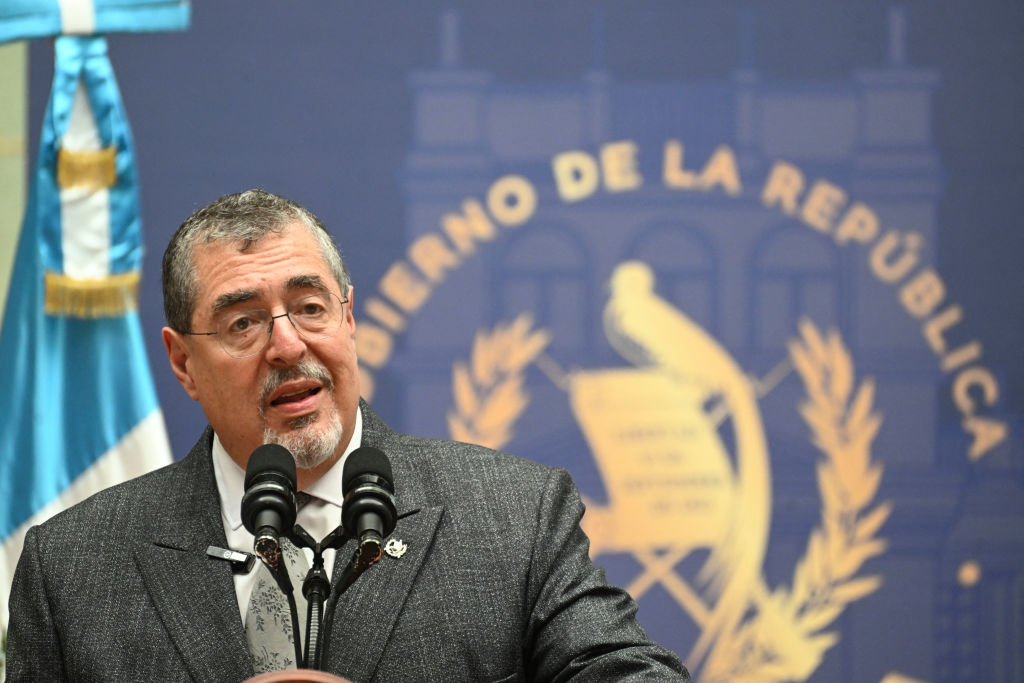Municipal Elections Test Chávez's Popularity
Municipal Elections Test Chávez's Popularity
Venezuelans voted Sunday in municipal elections. While President Hugo Chávez's Socialist Party won 17 of the 22 governorships up for grabs, the opposition chipped into his party's power grip by gaining the mayoralty of Caracas and other crucial posts.
Venezuelan President Hugo Chávez hailed the results of Sunday's municipal elections as a signal that voters "ratified the building of the historic project of Bolivarian socialism." Indeed, his Partido Socialista Unido de Venezuela (PSUV) won 17 of the 22 governorships up for grabs on November 24, when Venezuelans turned out in droves to vote. Venezuela’s electoral agency reported that more than 11,000 electronic voting machines were deployed and 130 high-level international observers from 52 countries oversaw the process to ensure transparency.
Chávez is expected to use the PSUV's victories as a means to strengthen his mandate and reform the constitution. But the opposition made important gains as well, winning crucial governorships along with the mayoralty of Caracas, arguably the second most important political seat in the county. As Teodoro Petkoff noted in Tal Cual, the opposition made important strides by winning states that accounted for a little more than half of the Venezuelan population but also represented the country's most important economic, cultural, and political centes.
In addition to choosing 22 of 23 governorships, elections included races for 328 mayoralties and hundreds of legislative offices. With such a large number of contested seats elections up for grabs, the elections measured Chávez’s popularity in a polarized society. The Christian Science Monitor examines how the country finds itself governed by a socialist government that controls vital economic resources but also maintains a capitalistic society that embraces stylish and upscale living.
These heavily contested elections link back to Chávez’ narrow defeat in a December 2007 vote on his proposed constitutional reforms. At the time, the opposition drew strength from newly organized student movement, which counted activist Yon Goicoechea among its leaders, and helped deal a blow to Chávez’ intentions to modify the constitution and engrave in it his so called “socialism of the 21st century.” Still, after the vote, Chávez tightened control over the economy, nationalizing cement, iron, and dairies industries as well as the Banco de Venezuela. He also took steps to circumvent defeat, passing 26 laws that mirrored most of the previously rejected constitutional reforms by using special legislative powers granted by Congress before they expired in July.
Months before Sunday’s municipal elections, the government dealt a blow to the opposition that strengthened Chávez’s hand: The electoral council barred nearly 300 mostly opposition candidates from running for office based on corruption allegations rather than charges. Leopoldo López, the popular mayor of the Chacao municipality of Caracas and a frontrunner in the race for Caracas mayoralty, was among the candidates disqualified. Yet he has remained a prominent figure in this campaign cycle, emphasizing that the opposition movement is “an alternative” rather than “anti-chavista.” Read an exclusive AS/COA interview with López about his alternative political platform.
Among the chief issues Venezuela’s fiscal soundness and growing crime rates. In particular, the upswing in violent crime, which has doubled over the past decade, stood as the top concern for voters. The homicide rate now stands at 48 murders per 100,000 inhabitants (compared to 5.6 per 100,000 in the United States) the Washington Post reports. Shortages of basic food staples like milk and beef harmed Chávez’ popularity rates in the past; since then, the government worked to guarantee sufficient food supply with mixed results.
Yet some argue that Venezuela’s financial outlook is not as grim as has been depicted. Oxford Analytica forecasts that there will be no short-term default in the Venezuelan economy and says that, despite the dropping oil prices, the government should have enough cash to move forward with its high social and fiscal spending in 2009, thanks to hefty reserves and low public debt. Mark Weisbrot, co-director of the Center for Economic and Policy Research writes for ReVista, Harvard’s Latin American review magazine, that despite constant attacks against Chávez’ heavy fiscal spending by the media and foes, the poverty levels in Venezuela dropped significantly since 2003. Weisbrot points out that extreme poverty indicators went from 29.5 percent in 1997 to 9.6 in 2007.
Updated with poll results November 24, 2008.






